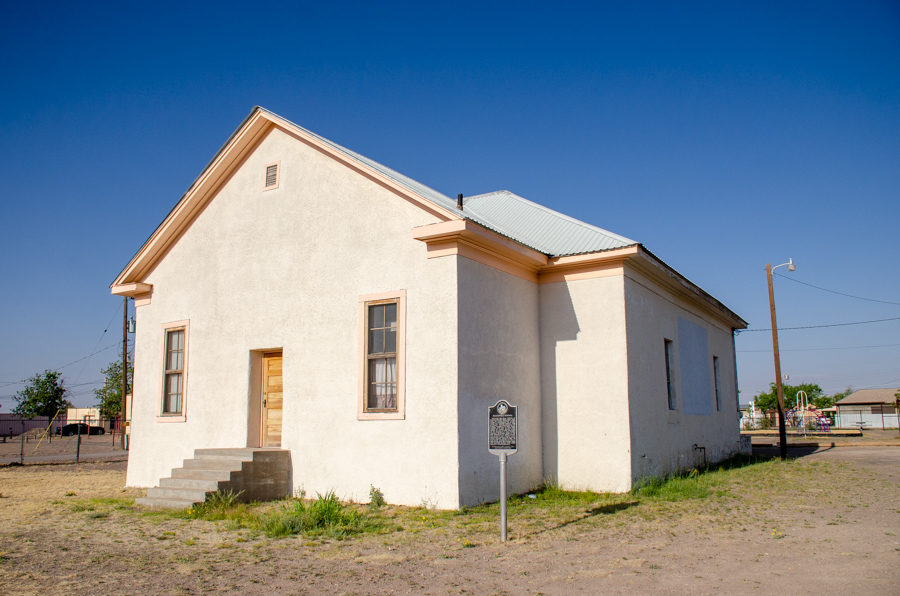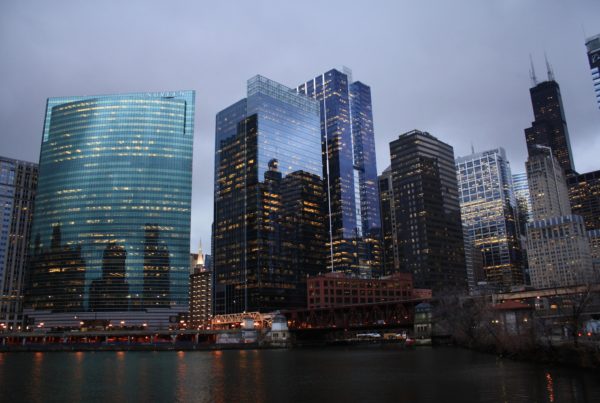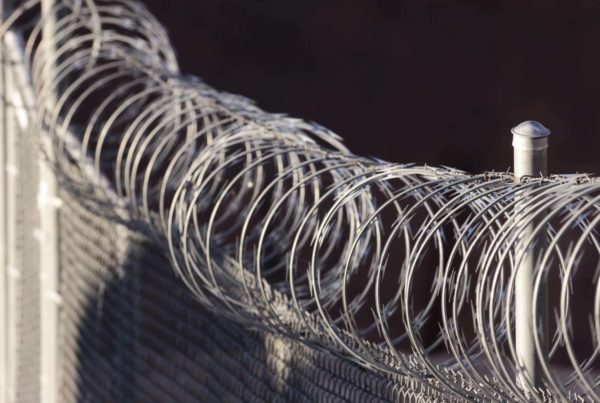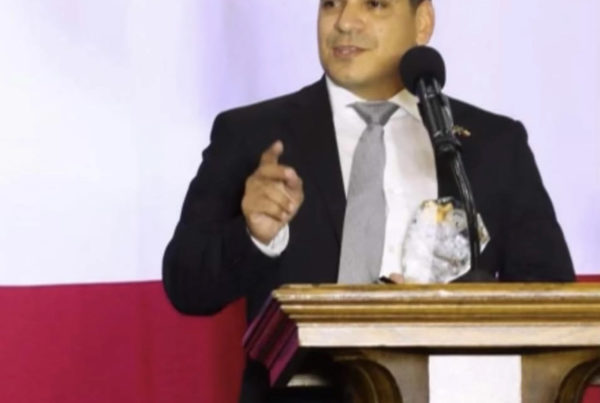The Blackwell School in Marfa once served as the only school for Mexican American children in the West Texas town. Now, it’s a national historic site after a vote by Congress last week.
No state law mandated that white and Hispanic children attend separate schools, but Texas practiced de facto segregation in its school districts until the 1960s. Today, the Blackwell School is the only remaining structure directly tied to the history of Mexican American segregation in Marfa.
Community members have been working to preserve the school’s history for nearly two decades. Daniel Hernandez is one of them. Listen to the interview above or read the transcript below.
This transcript has been edited lightly for clarity:
Texas Standard: This is something that you folks have been working toward for some time. Tell us a little bit more about why you and others saw it to be so important for this school to be designated a national historic site.
Daniel Hernandez: The efforts to preserve the Blackwell school really have been going on for the better part of the last two decades. The school operated from 1909 until 1965, when the Marfa schools were finally integrated. And at some point, around 2007, the school district, who is the current owner of the site, was actually looking to demolish the building that had served a few different purposes for the school district. This group of dedicated alumni came together and, even then, knowing that this place was special, said ‘we don’t want you to tear down this school.’
And so they banded together, they raised funds, and they were able to prevent the school from being torn down. And ever since then, the project has sort of taken an evolution – both of historic preservation and at the same time of being able to elevate the stories not only of students and those who attended Blackwell, but also for those who attended schools like this throughout the state and throughout the country. And so what we have today is this prime opportunity to elevate the story of de facto segregation and to talk about, I think, this historically-obscured moment in time where a state law was not particular about how Mexican American schoolchildren were to be treated, but at the same time, they were de facto segregated just by where they lived in sort of the neighborhood lines that were drawn in the schools that they were told to attend. And so, now we’re knocking on the door of America’s next national park site, being in Marfa Texas.
Wow. Well, I want to ask about your connection to the Blackwell School. What is it exactly?
My personal journey with the Blackwell School has been really interesting. I’ve done some work a very, very long time ago with the organization to do some web design. And that was probably the better part of about two decades ago when they had first started these efforts. And then recently, my interest was again piqued when the Alliance executive director approached me and said, ‘hey, we are trying to make this site a national park site.’ And so I then jumped in and got involved in this process with sort of being able to shepherd this legislation through and doing community outreach and basically trying to be diligent about how we approached this project.
Both of my dad’s parents attended the Blackwell School, as did my mom’s mom. And so it’s really nice to be able to work on this project that I feel such a deep personal connection to.
You mentioned that many other districts had torn down or demolished some of these schools that were used to instruct Hispanic students during this period of de facto segregation. And Marfa is unique in the fact that its structure still stands. Did you sense any ambiguity about whether or not this building should be preserved, given that legacy of de facto segregation?
I think there are a lot of ways to look at the experience of what Mexican American children went through in that difficult chapter in our nation’s history. But I think that, by preserving the Blackwell School, we have that opportunity to interpret that history and to analyze these stories and to pull people together from all these different perspectives that folks have about this chapter in American history. And then to be able to not only interpret that in a way that is sort of authoritative in terms of the national government and the national park site. But the National Park Service has more than 400 sites across its portfolio, and only two or three are currently dedicated to modern Latino, modern Mexican American history. And so at the same time, I think this will also open the door for other organizations in other special places, just like Blackwell throughout the country, to be able to be preserved and to be able to launch into those discussions about difficult history. And so that’s really what we want Blackwell to be, is for it to be a space where people can come together and talk about these stories and analyze this history in a way that is meaningful and impactful and also validates those experiences.
I want to ask about the designation and the significance there, and what next steps are. You’ve talked about how the community behind this effort wants to go all the way with a national park, having it as an historic site. What are the next steps? And then, what do you have to do to move from historic site to a national park?
A national park is actually a designation by the National Park Service. And so once this bill is signed by the president, it will actually become a national park site, which is actually sort of on the same level of a national park. But instead of this being sort of a big public lands site like Big Bend or Guadalupe or Big Thicket, for example, we’re looking at a more cultural site. And so the national historic site would be established sort of like Fort Davis. You know, the Fort Davis national historic site, which is just north of Marfa. And so the process, really now we are just waiting on the president’s signature. And then once he signs that, the designation is official and we will be witnessing the creation of the Blackwell School national history site.
And will there be federal funds to support maintenance repair efforts as needed? How does that work?
We do hope that through the federal appropriations process, at some point funds will be designated for the park. Obviously, I think that’s still going to be a little ways down the road. And again, this process has been long and ongoing. And the conversion to a national historic site in practice is not going to happen as quickly as I think as it will in theory. But we are really, really hopeful that our congressional champions and, of course, given the grassroots support from this community and the support we’ve seen from throughout the state in the country, will really help fuel being able to support this site and stand it up and allow it to be sort of that venue to examine this difficult chapter in history.
Could you say a little bit more about what receiving national recognition for the Blackwell School means for the alumni and for the Marfa community at large?
This really is a momentous occasion for us. And I see us not as just the alliance or for those that have been working on this project, but really as a nation. It really provides us with a window into a part of American history that I think has historically been obscured. And the more that we have been able to promote this project and get the word out and talk to folks across the state and across the country about these experiences, the more stories we hear of folks that say ‘my grandparents attended schools like that, my uncles and aunts and other relatives attended these schools.’ But from our perspective, it’s far beyond time that these stories be told. You know, I can tell you that for the vast majority of folks who are involved in this project and who have reached out to us, they are absolutely supportive and want to see this happen. And of course, there are also folks that did not have the best experience at the Blackwell School. There’s a checkered history there. I think that, you know, some folks will find both interesting, and I think a lot of folks also find painful. But we want to approach this from a perspective of making sure that we’re honoring those stories and telling them in a way that’s going to validate them and really be able to shed some new light on the history that happened here. And I think that this designation is a step in the right direction.















